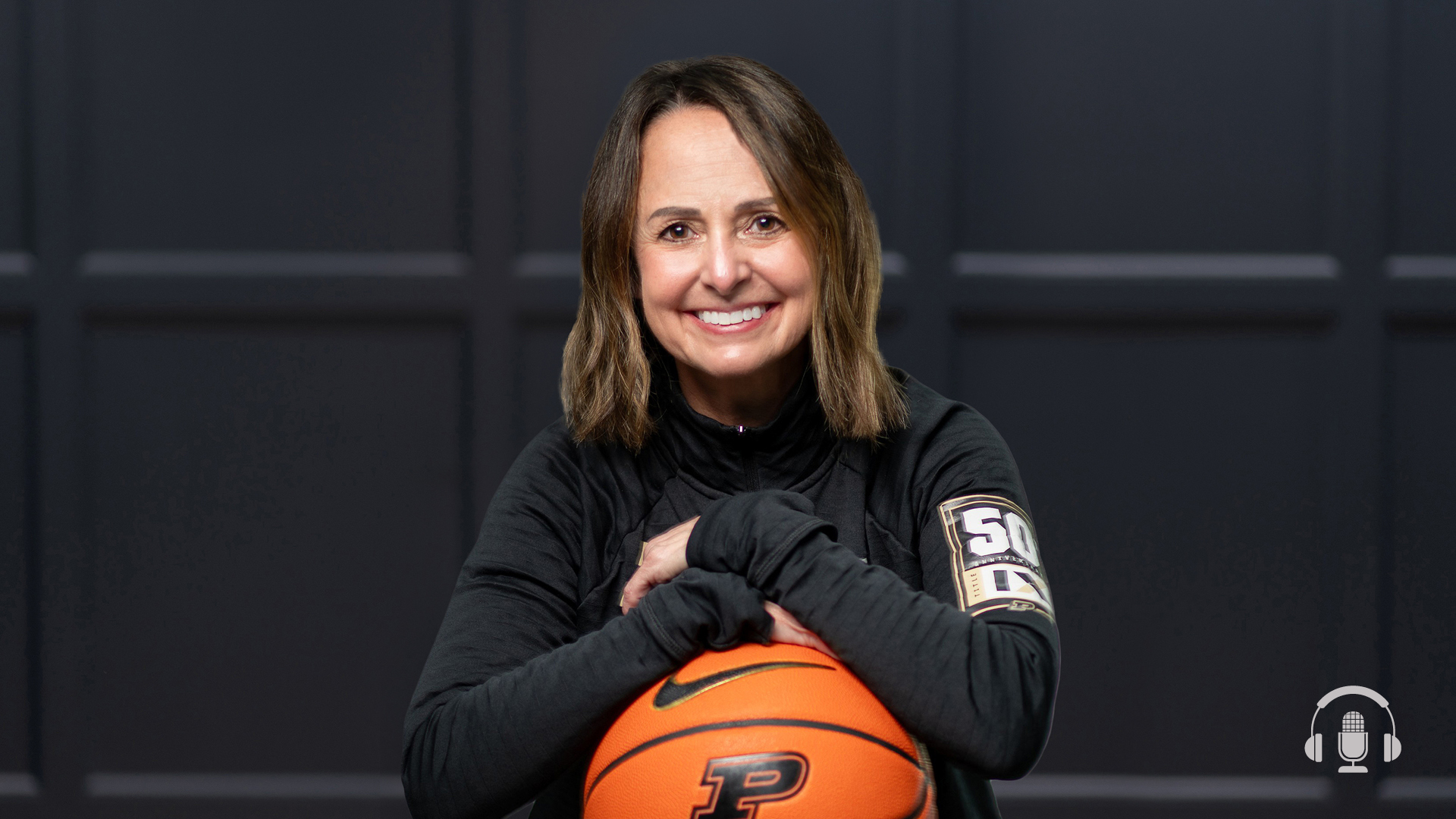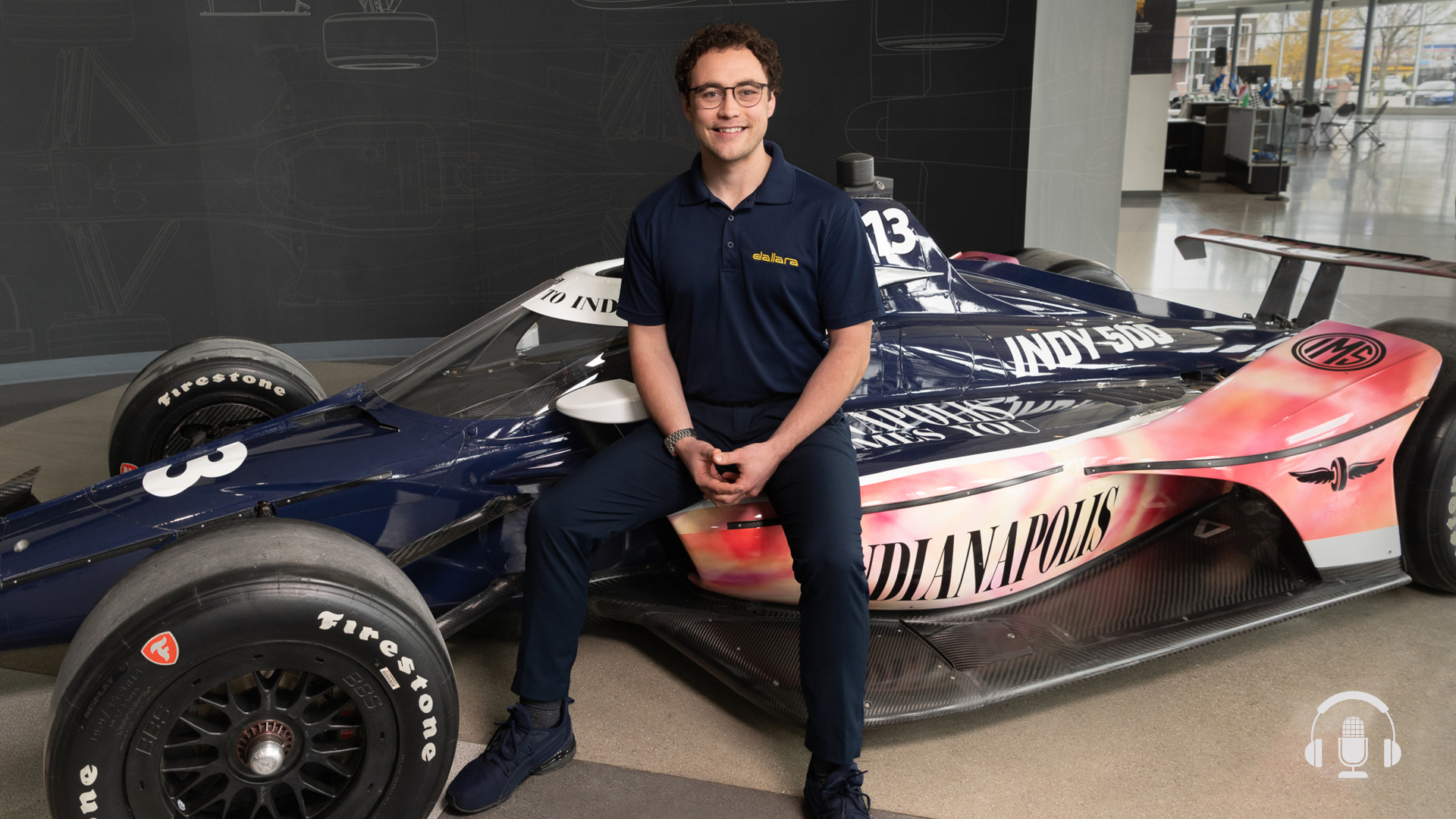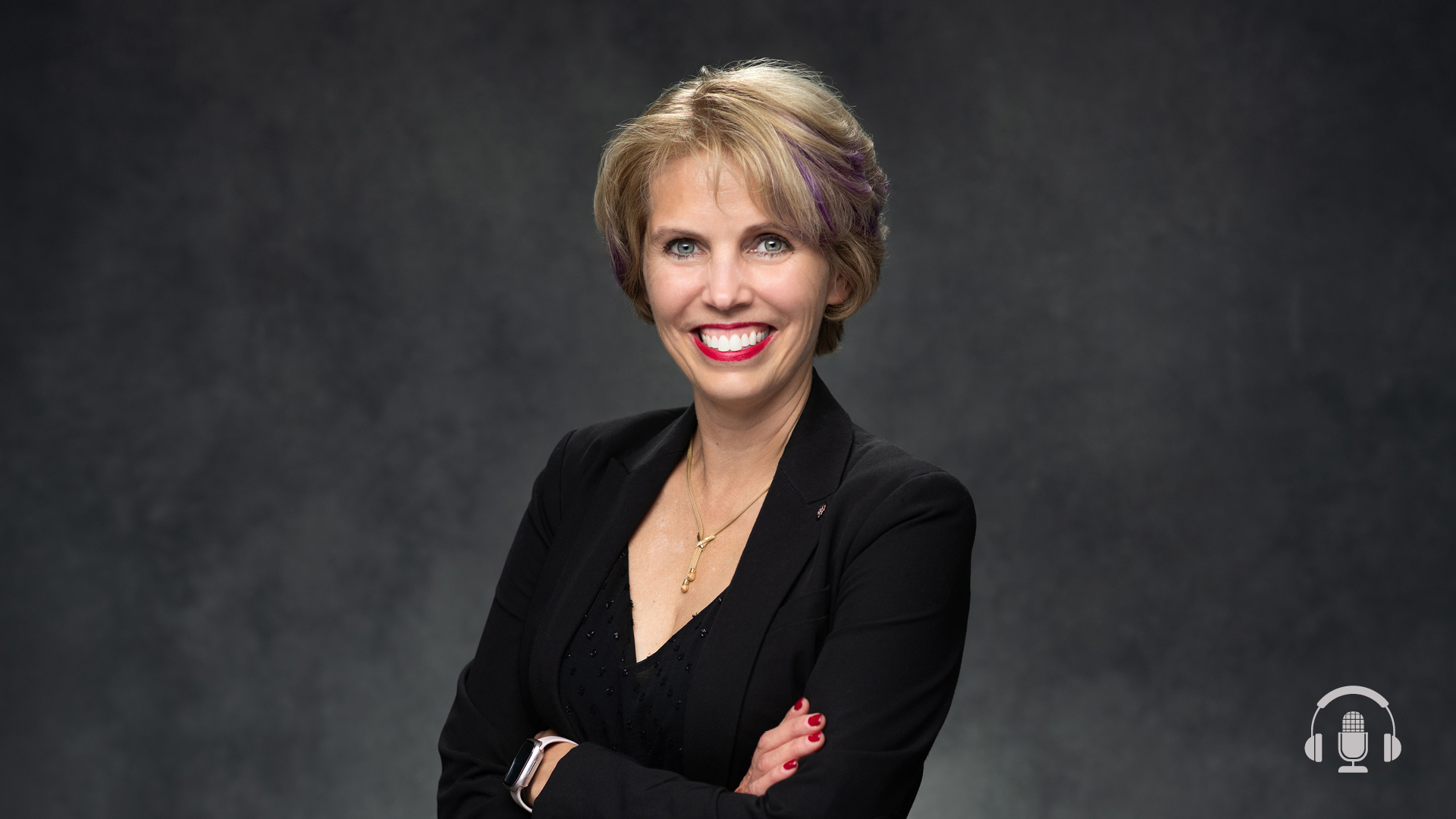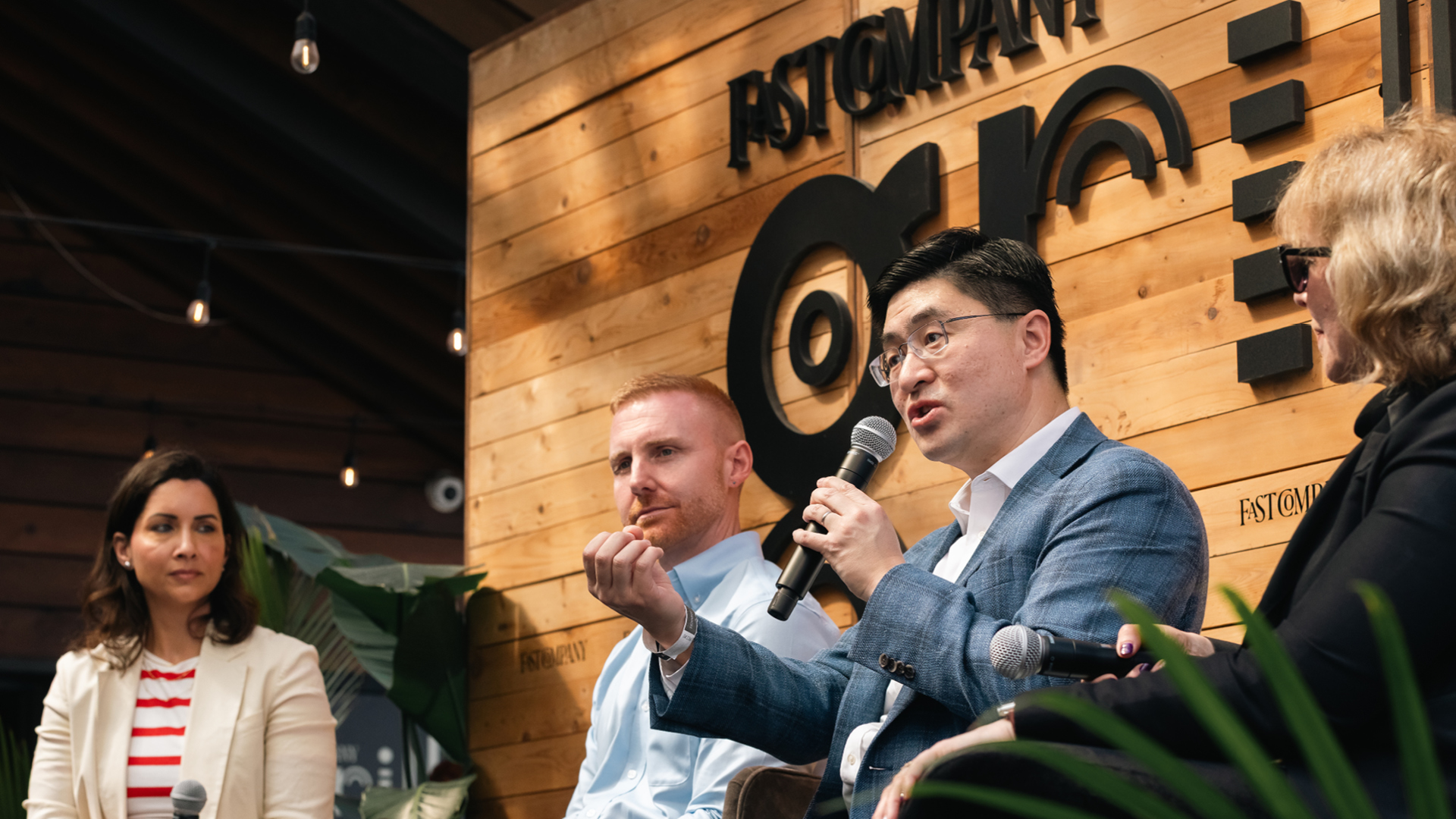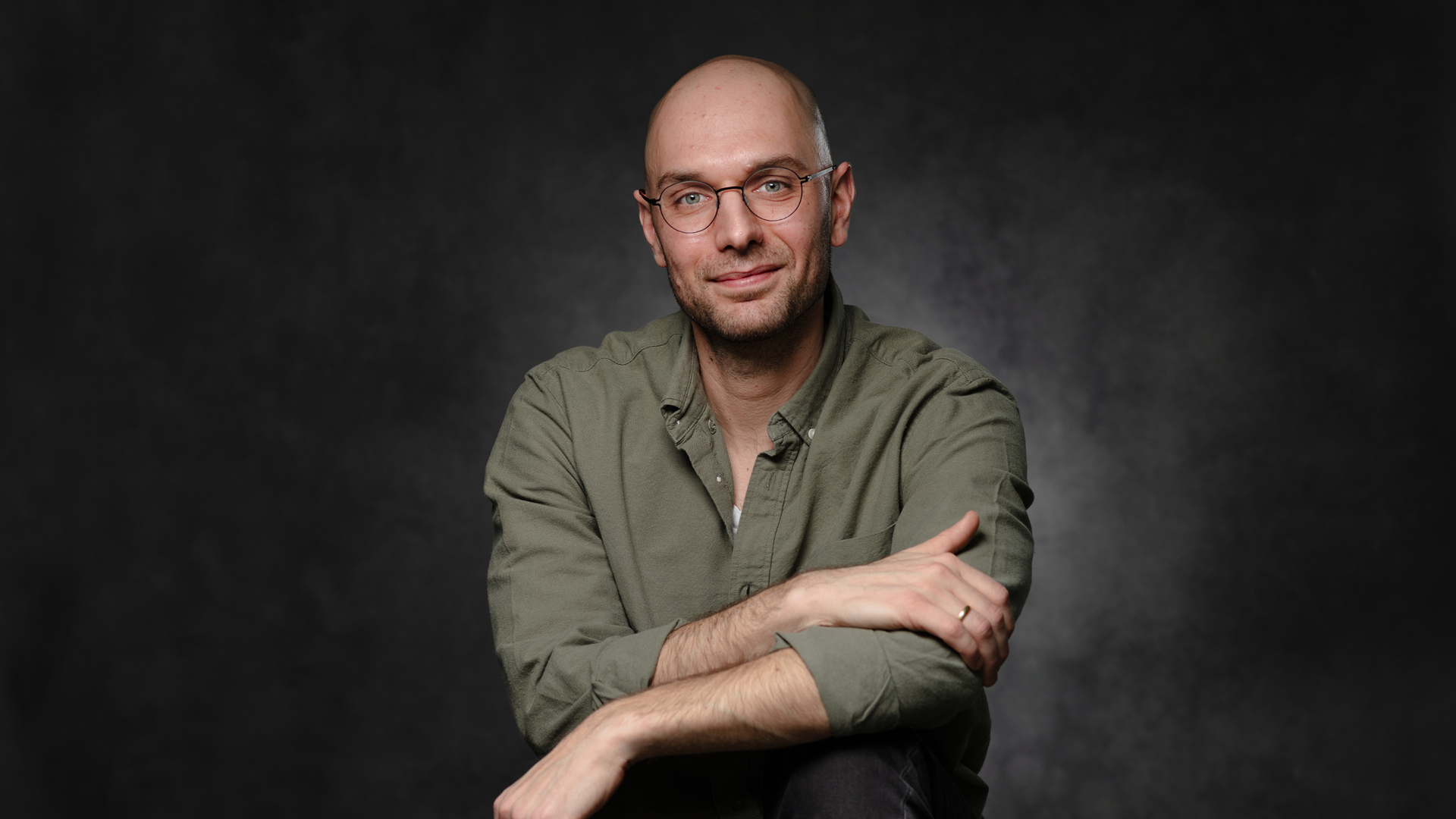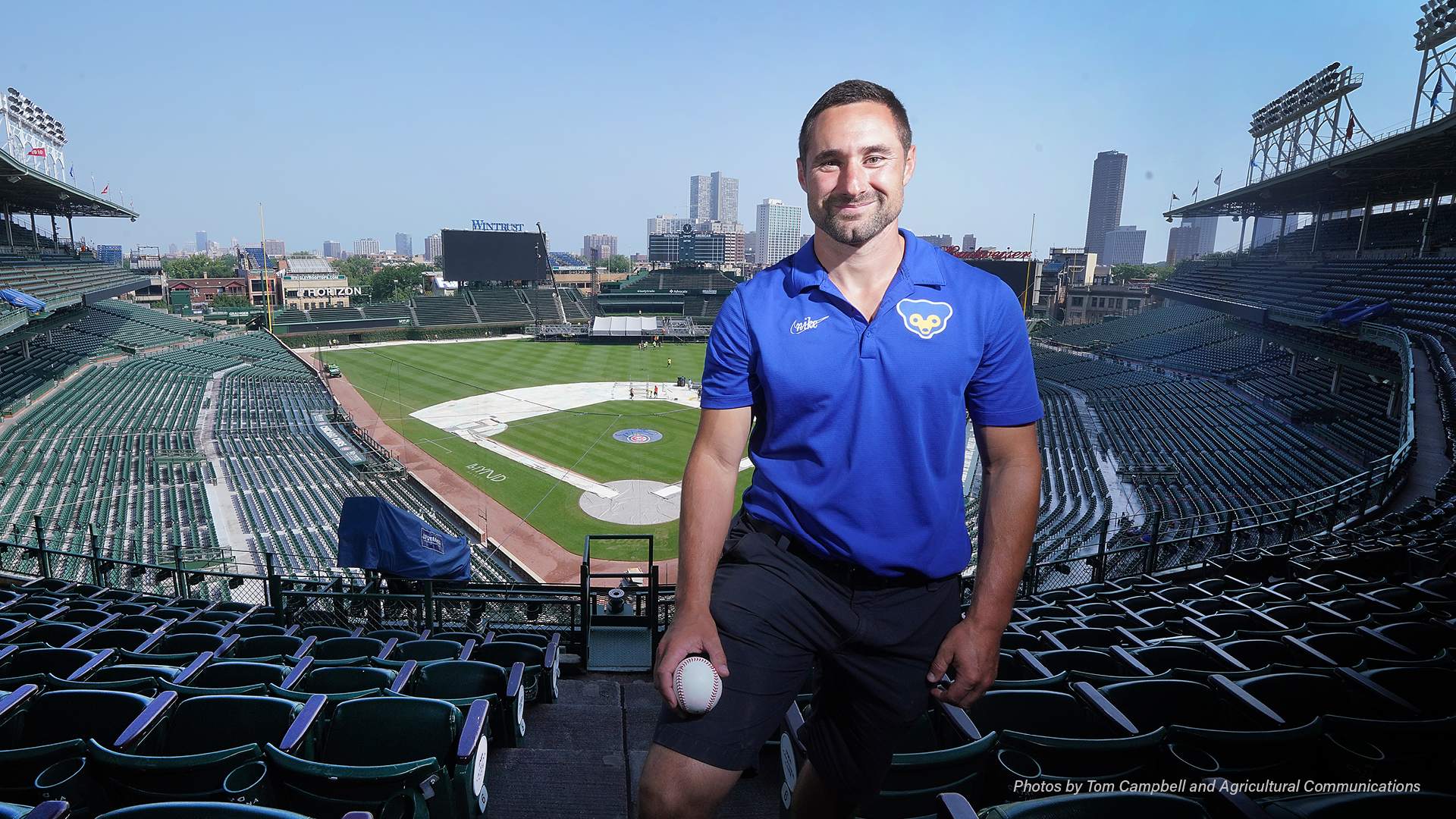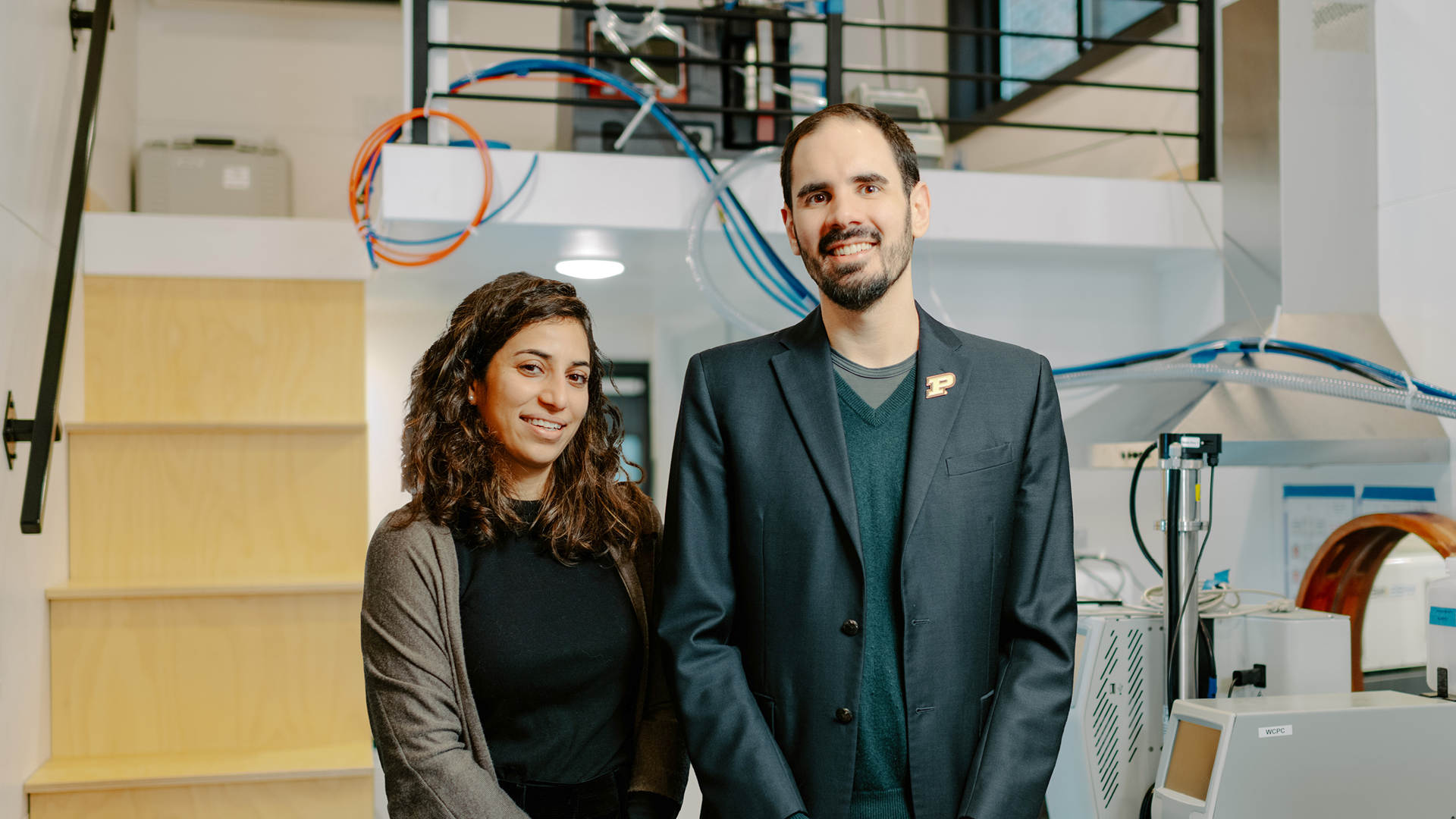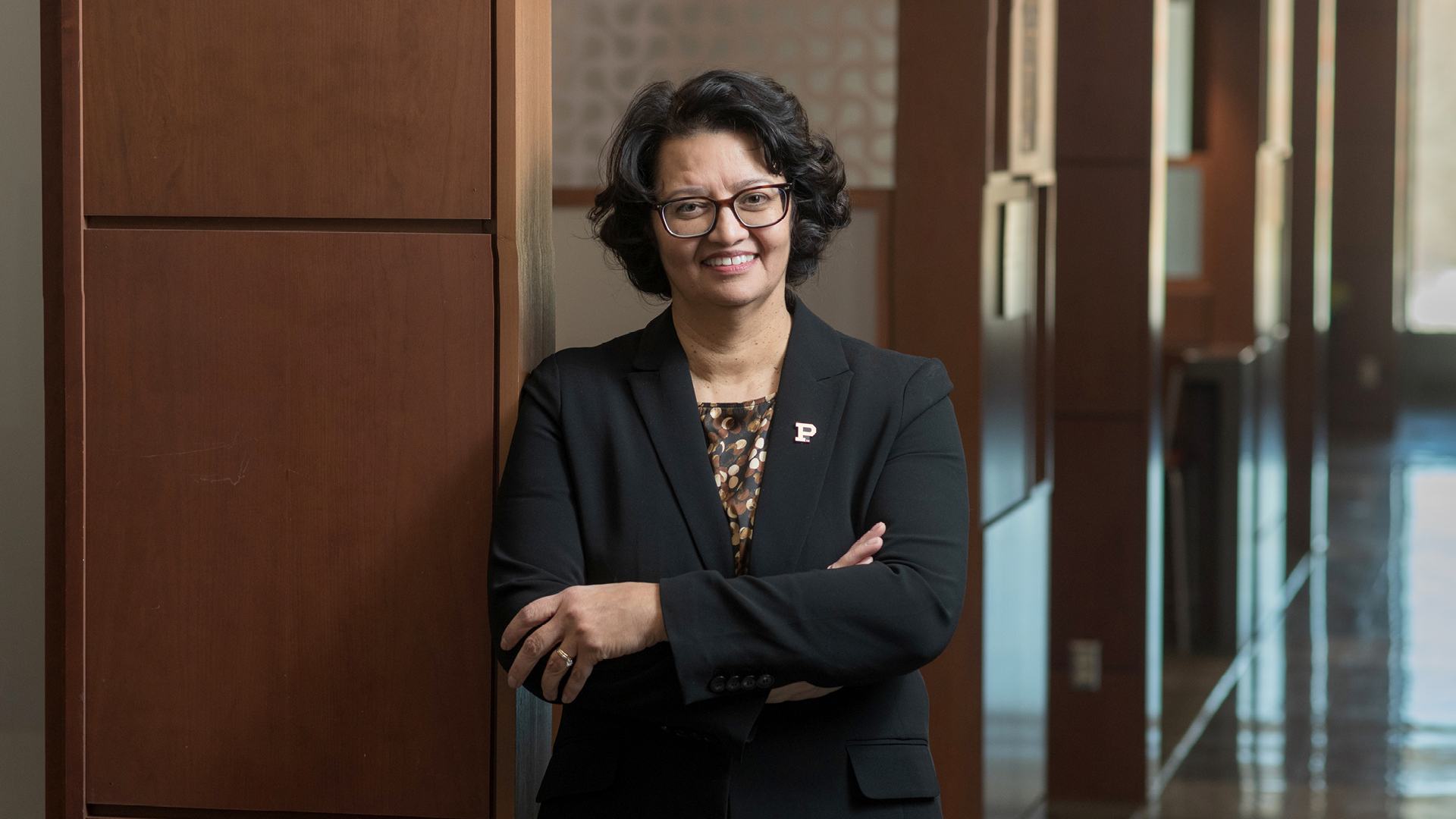Podcast Ep. 99: A New Dean for a New Era: Getting To Know Purdue’s Daniels School of Business Dean Jim Bullard
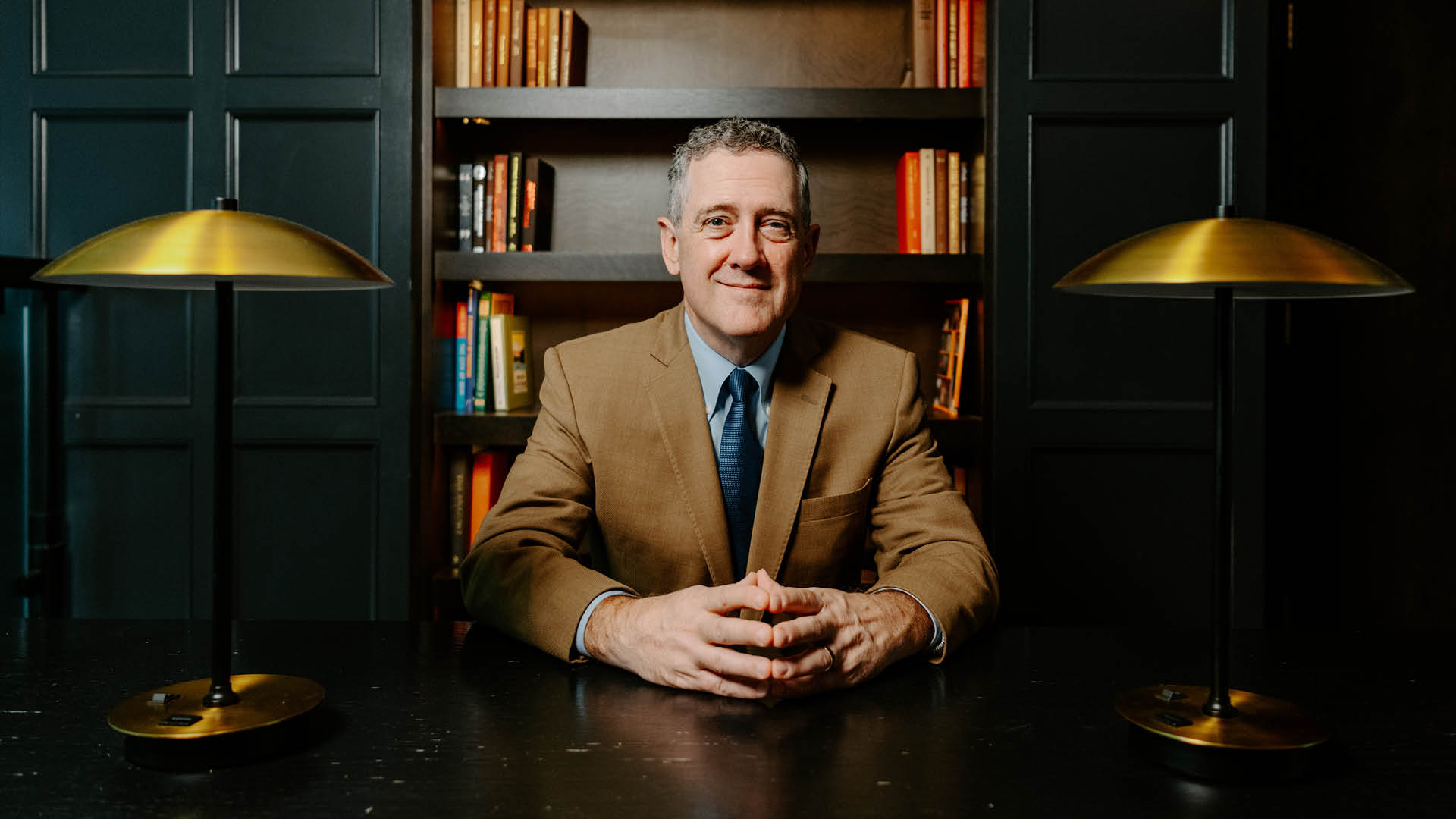
In this episode of “This Is Purdue,” we’re talking to Jim Bullard, the Dr. Samuel R. Allen Dean of the Mitchell E. Daniels, Jr. School of Business.
Listen as Dean Bullard discusses his career journey from his time navigating obstacles like the Great Recession and COVID-19 pandemic as president of the Federal Reserve Bank of St. Louis to accepting his new role with the Daniels School of Business — an opportunity he calls “irresistible.”
Dean Bullard shares his excitement for the future and how he plans to use his robust real-world business and economics experience to innovate the Daniels School of Business.
“We want to really reimagine the Daniels School of Business … to make DSB parallel with the engineering prowess of Purdue University,” Dean Bullard says.
Plus, as technology continues to intersect with the business world, Dean Bullard explains the position Purdue is in to become a leader in STEM-based business and the importance of business and STEM working together.
Also, we get to know Dean Bullard on a more personal level as he discusses his enthusiasm to be part of a Big Ten university, what he likes to do in his free time in West Lafayette and his favorite movie. (Hint: This blockbuster movie features another “This Is Purdue” podcast guest and proud Purdue alum.)
Celebrate this new era of the Daniels School of Business by getting to know its new dean on “This Is Purdue.”
Full Podcast Episode Transcript
Dean Jim Bullard:
This is Dean Bullard, and you are listening to This Is Purdue.
Kate Young:
Hi, I’m Kate Young, and you are listening to This Is Purdue, the official podcast for Purdue University. As a Purdue alum and Indiana native, I know firsthand about the family of students and professors who are in it together, persistently pursuing and relentlessly rethinking. Who are the next gamechangers, difference makers, ceiling breakers, innovators, who are these Boilermakers? Join me as we feature students, faculty, and alumni taking small steps toward their giant leaps and inspiring others to do the same.
Dean Jim Bullard:
I often say that technology ate business. Technology used to be out there. Of course, it has always been a big part of American capitalism, but it didn’t permeate the whole business world the way it does today. And today I think the notion that you can get your business degree and learn some basic business things and then just go out in whatever the business is, that it’s no big deal, that isn’t the world anymore. You have to understand the technology in order to manage the technology.
I just think we’re in a great position to succeed on this. Other business schools will say that they also want to do STEM-based business, but they won’t have nearly as much credibility as we have on this dimension.
Kate Young:
A new school, a new dean, a new era. In this episode of This Is Purdue, we’re talking to Jim Bullard, the Dr. Samuel R. Allen Dean of the Mitchell E. Daniels Jr. School of Business, special advisor to Purdue president Mung Chiang, and Distinguished Professor of Service in the Department of Economics. See, back in February of 2023, Purdue’s next big move in a decade-long series of major strategic investments honored a celebrated president who led transformational change at Purdue, Mitch Daniels. The goal of this reimagined Mitchell E. Daniels Jr. School of Business will prepare tomorrow’s leaders and entrepreneurs, grounding them in the hallmarks of a Purdue education, including STEM disciplines and business analytics. And Dean Bullard plays a major role in this next big move.
You’ll hear more about Dean Bullard’s career journey, from his time navigating obstacles like the Great Recession and Covid-19 pandemic as president of the Federal Reserve Bank of St. Louis, to accepting his new role with the Daniels School of Business. He also dives into his excitement for the future and how he plans to use his robust real-world business and economics experience to innovate DSB.
And as technology continues to intersect with the business world, Dean Bullard explains the position Purdue is in to become a leader in STEM-based business, and the importance of business and STEM working together. Also, we get to know Dean Bullard on a more personal level, as he discusses his enthusiasm to be part of a Big 10 university, what he likes to do in his free time, and his favorite movie. Quick hint here, this blockbuster movie features another This Is Purdue podcast guest and proud Purdue alum.
Thanks for joining us as we celebrate this new era of the Daniels School of Business by getting to know its new dean on This Is Purdue. Dean Bullard, thank you so much for joining us on the official university podcast, This Is Purdue. Let’s go back to the start. How did you find out about Purdue? What made you want to take this role here at Purdue?
Dean Jim Bullard:
Well, Purdue has a great reputation for many, many years. It’s a great university, and I appreciated Purdue recruiting me for a dean’s position. I’m not the traditional candidate, I’m not coming from another dean’s office somewhere, so I appreciated that. So much enthusiasm and passion around the new Daniels School of Business. So it’s irresistible.
Purdue’s a fantastic school for a long time. Number four in the nation in engineering, according to U.S. News. Larger than the top three schools combined. So really a technical powerhouse. We want to make the business school parallel with the engineering prowess of the university. So just a great opportunity.
Kate Young:
Dean Bullard received his doctorate in economics from Indiana University and holds bachelor of science degrees in economics and in quantitative methods and information systems from St. Cloud State University. He shares more about his academic background.
Dean Jim Bullard:
As an undergrad, I had a double major. One part of it was a degree called Quantitative Methods and Information Systems, which doesn’t sound too different from what’s going on on campus today with integrated business engineering and business analytics and other degrees that we have for undergrads. The other degree was bachelor of science for economics, and I loved economics right from the beginning and eventually went on to get my PhD. So it was a good match, and I definitely had the idea of taking thoughts from operations research, statistics, and applying those to economics, and that’s essentially what I did in my career, although there are lots of twists and turns.
Kate Young:
Prior to coming to Purdue, Dean Bullard was the longest-serving Federal Reserve Bank president in the country and spent the last 15 years as the president and chief executive officer of the Federal Reserve Bank of St. Louis. Dean Bullard dives into the role of the Federal Reserve Bank in our nation’s economy and shares more about his previous role.
Dean Jim Bullard:
So the Federal Reserve is the central bank of the United States. It’s the leading central bank in the world because the United States is the leading economy in the world. It’s a decentralized central bank. So we have part of it in Washington D.C., part of it in New York and Wall Street, but part of it’s spread around the country, and St. Louis was in that part, the Main Street part of the Federal Reserve. And we like to play our role as being the representatives of Main Street in important monetary policy decisions that get made by the Federal Reserve.
So the Fed runs monetary policy, which is in common parlance, interest rates. We’re the guys that brought you the high interest rates that you’re paying today. And we also regulate banks and we also run parts of the payment system. And we also have a big research function, so there’s an academic side to the Fed, as well. There’s probably 800 PhD economists at the Fed if you count them all up. So it’s a big component. It’s like a big university in a way.
Kate Young:
Nice. And so walk us through your role there. What were your everyday duties? I’m sure every day was different there.
Dean Jim Bullard:
Yeah. I would say one third of the role is as a CEO of the bank and sort of day-to-day management activity for the bank and make sure you have a good team in place and that they’re pursuing the strategy of the bank. There is a board of directors at the bank, so it’s set up like a private corporation, nine member board of directors, excellent people that are willing to serve on that board.
And then a third of the job is to be a national and international policymaker. I think if you’re going to be on the open market committee, which is the main policymaking committee, you have to have a global perspective because everything you’re doing is affecting everybody all around the world. Other central banks follow the policy of the United States. And you also have to have a touch for Main Street, the businesses, ordinary businesses in smaller places around our district, the eighth Federal Reserve district, but elsewhere around the country. And so you want to get perspective on that whole gamut, from big to small.
And then another part of the job is to be a system executive because a lot of things that happen in the Federal Reserve happen at the system level, but a lot of those things, like a university here, are done by committee or done by consortiums of executives. So that has been taking an increasing amount of time in recent years. So that’s part of the job, as well.
Kate Young:
Dean Bullard is one of the nation’s foremost economists and respected scholar leaders. He’s well known for his longstanding leadership and innovative thinking as part of the Federal Open Market Committee and guiding the direction of US monetary policy. He was also ranked as the seventh most influential economist in the world in 2014, and as the president of a Federal Reserve Bank, Dean Bullard was charged with making tough decisions that have major implications for the economy. He explains the research that goes into navigating these decisions.
In your former role, you had to make these incredible difficult decisions. You just mentioned the high interest rates. How do you approach that task, making these decisions that impact so many people?
Dean Jim Bullard:
Well, we had a clear agenda at the St. Louis Fed anyway, that there’s a research side and fantastic ideas in economics, but they’re pretty complicated and they’re tied up with a lot of technical analysis. But you want to make that research somehow meet up with the actual policy decisions and get them to meet in the middle so that you get the very best policy that you can have.
I always said that if you want to put a person on Jupiter, you would want the very best engineering that you could get. You wouldn’t want just somebody scratching something out on the back of an envelope or something. So I think the same is true for US monetary policy. You want the best analysis that you can get, bring that to the table, and inform the policy choices that are being made. So we pushed hard in that direction. Not always welcome, but I think that’s important to get great policy for the country.
Kate Young:
And you were the president at the St. Louis Federal Reserve during times like the Great Recession, the Covid-19 pandemic. What was that like? How did you steer the direction throughout those challenges?
Dean Jim Bullard:
For the 2007, the 2009 period, which was a big financial crisis, that was a little bit different. That originated in the US, originated on Wall Street, not really the banking sector. It’s really the non-bank financial sector where that came from, investment banks at the time. That had a very different feel from the pandemic. The pandemic was a health crisis that came from outside the economy, but we had to deal with the economic ramifications of the health crisis. So two very different but very large disturbances for the US economy.
I thought the response to the pandemic in particular was very good. The initial response in March and April of 2020, I would say right in that period there could have been another financial crisis, but because of the fast action taken by both the Federal Reserve and the US Treasury, we ended up avoiding a financial crisis. So we only had one crisis, we just had a health crisis, which was bad enough by itself, but we didn’t pile a financial crisis on top of that. And I thought that was a big success story, kind of a dog that didn’t bark during that period.
Kate Young:
And everyone was scared during that time with the health crisis, but also with what was going on in the financial world, right?
Dean Jim Bullard:
Yeah, a very volatile period. But within about two or three months, it started to stabilize quite a bit.
Kate Young:
Dean Bullard was officially appointed as the inaugural dean of the Daniels School of Business in July of 2023, following an extensive international search. After he was hired, Dean Bullard said, quote, “Purdue is known around the world for forward-thinking innovation. I will work to foster that spirit, and I think I can bring some real world experience to pass on to the next generation of business leaders and innovators.”
And Purdue President Mung Chiang has said that, “Dean Bullard will be a transformational leader, as his track record has the perfect combination of national impact, scholarly excellence, and innovative leadership.”
Dean Bullard shares more on his recruitment for this role. President Chiang described your recruitment as a singular extraordinary moment for the future of the Daniels School of Business and the tech-driven free market economy. How did that make you feel when you heard that?
Dean Jim Bullard:
Well, I appreciate the support from President Chiang and he’s been a great friend and a great recruiter here, and I hope I can live up to the hype. But there is a lot of enthusiasm behind this project and we want to really reimagine the Daniels School of Business and we have lots of, I would say financial support, lots of intellectual support for all the elements that we’re trying to do. But it’s one thing, I think the top-level plan looks fantastic, but it’s another thing to actually get that down to actual granular level and make sure everything’s working well. So we’ve got a long ways to go on that, but it’s a fun journey.
Kate Young:
I asked Dean Bullard what he hopes to bring to the Daniels School of Business with his decades of in-depth real-world experience. He dives into managing the growth of the number of full-time employees at the St. Louis Fed during his time as president and why building a great culture is incredibly important to him.
Dean Jim Bullard:
I’m a little different choice as a dean. I do have experience as a CEO. We were successful at the St. Louis Fed in many ways. When I took over, we were headed toward maybe 750 FTEs. By the time we were done, we were at 1500. That’s because we grew businesses even within the bureaucracy of the Fed. We innovated in various ways inside the Federal Reserve system and we produced products that were useful within the system for the things that the Fed had to do.
So hopefully I can bring that kind of vision here. This is a similar situation, where the Daniels School is one part of the larger enterprise and the larger organization. So you want to think about ways that the Daniels School can do what we need to do to be really great, but also contribute to the campus as a whole. And I hope I can bring some of those ideas here.
We also worked a lot on culture at the St. Louis Fed, and by the time we got to 2016, 2017, 2018, we were the best place to work in the St. Louis area. Our efforts at building culture really paid off. The pandemic upset all that, but pre-pandemic we got to that point. Hopefully we can build that here. And I think when you have a lot of great culture, culture eats strategy, so I have lots of things eating other things, but culture eats strategy, and so you want to have a great culture and people feel a sense of belonging, being part of the project, and really contributing.
Kate Young:
Well, and the culture at Purdue is so special on its own.
Dean Jim Bullard:
No, certainly, and we want the DSB to be part of that.
Kate Young:
Weaving STEM throughout all areas of study is something that is uniquely Purdue, including at the Daniels School of Business, through programs like business analytics and information management or integrated business and engineering. So why does Dean Bullard think it’s so important for business students to have a deep understanding of STEM principles?
Dean Jim Bullard:
I often say that technology ate business, and I’m not sure that resonates with everybody, but that’s kind of the last 25 years, is that technology used to be out there. Of course, it has always been a big part of American capitalism, but it didn’t permeate the whole business world the way it does today. And today I think the notion that you can get your business degree and learn some basic business things and then just go out and whatever the business is, it’s no big deal, that isn’t the world anymore. You have to understand the technology in order to manage the technology. And so that’s what’s different today.
And I would characterize that as the world has come to Purdue. And you look at these Silicon Valley in particular, but really all business across the board just being dominated by technological developments. You have to understand some of the intricacies of that technology in order to be able to manage the people around it and to think about how to design your products so that your business will be successful. So I just think we’re in great position to succeed on this. Other business schools will say that they also want to do STEM-based business, but they won’t have nearly as much credibility as we have on this dimension. So I think we have a great chance of success.
Kate Young:
Through Dean Bullard’s work at the Fed, it’s clear that he is a big believer of a free market economy, which aligns very closely with the beliefs of Mitch Daniels, former Purdue president and namesake for the business school. I asked Dean Bullard why it was important to him that these concepts be reinforced with business leaders for generations to come.
Dean Jim Bullard:
One of our pillars, I’ve been calling it freedom and capitalism. I like the freedom part there too, because I think free to choose is part of the story. We all make choices in our economic lives and we don’t want the government coming in and telling us what we have to do. So I think that’s an important element of what we’re talking about. But I would just like to be able to get across to students the strength of market approaches to the economy. And for most purposes, markets do a great job of allocating resources. They attract the right amount, and the prices attract the right amount of supply to meet the demand that’s out there.
And most of the time, that works fine. There are situations where markets don’t work as well, and it’s fine to look at those and worry about those, but you don’t want to give the impression that that’s everything that’s going on. I think 99% of the time markets work just fine and you just let the market system do the work for you, and you don’t have to have elaborate debates about how to intervene in markets where it’s not really necessary.
So we’re working on that. One of the things that we have going right now is the Cornerstone for Business program. So there’s a Cornerstone program on Purdue’s campus already that was copied by 60 other campuses. That’s a sort of introduction to great literature and great communication, great writing. But this year, starting now, we’re doing the Cornerstone for Business program, which takes some of that same curriculum and converts it over to a more business focused Cornerstone program.
I’ve been saying that you take out Wuthering Heights and you put in Adam Smith, and that gives you kind of the flavor of what we’re beta testing this year. 650 students are doing that right now. Early reports seem to be very good on this. So I think this is one aspect, and we’ll adjust it as we go forward, but this is not something … I think it’ll be very successful and probably get copied by other business schools.
Kate Young:
Dean Bullard walks us through both his short-term and long-term goals for the reimagined Daniels School of Business.
Dean Jim Bullard:
I want to upgrade the academic prowess of the DSB. We’re already very good, but we do have a Dream Hires program on campus, and so we’ll use that to our advantage and bring in some great scholars at a senior level. So we’re looking forward to that. In academia, that’s a very slow moving process. We’ll stay at it and we’ll get some great hires.
I want to emphasize the STEM equals business connections and work with engineering and other parts of campus that want to partner with us and get great degrees out there that can kind of balance the ideas about learning about technology with knowing at least some business. A lot of the engineering students on campus want to start a business. Maybe they should know a little bit about how businesses work before they do that. I think that entrepreneurship is another area I’d like to build up and focus on.
We want to have a great student experience for everybody at the DSB, so we want to upgrade our support services, career placement, academic advising, camaraderie and club feel of being in the DSB. I think support to students that are struggling, all this kind of thing we want to be good at and make sure everyone’s having a great experience.
I think better business connections. We have great people that are helping us, but I think other business schools do more in this dimension than we do, and so we want to build that part of our program up. We’ve got a lot of great talent all around. Purdue actually produces many of the CEOs, one of the leading schools for producing CEOs of Fortune 500 firms. And I think that’s kind of indicative of our students doing better. And so we want those, to the extent possible, we want some of them to be coming back to campus, helping us teach the next generation of students. And then we had the Freedom of Capitalism part, which we’ll develop both with the Cornerstone for Business program, but other elements, as well, that we’ll work on.
Kate Young:
We had the president of Pizza Hut on the show.
Dean Jim Bullard:
Oh, great.
Kate Young:
Who’s a Daniels School of Business graduate.
Dean Jim Bullard:
Excellent.
Kate Young:
But you should get him to come in and speak to a class.
Dean Jim Bullard:
Absolutely.
Kate Young:
Are you a fan of Purdue basketball? Need something to help you get your Boiler fix before the next big game? Check out the Boiler Ball podcast to stay in the know and get inside stories all about the Purdue basketball program and beyond. Subscribe wherever you get your podcasts.
Dean Bullard was born in Wisconsin and grew up in Forest Lake, Minnesota, so he’s very familiar with the Midwest. He shares a bit more with us about his family life with his wife, Jane, and their two daughters.
Dean Jim Bullard:
I have two kids, two daughters, early thirties. One is in Denver and one is in Minneapolis.
Kate Young:
And they didn’t go to Big 10 schools?
Dean Jim Bullard:
They did not. They went to expensive private schools.
Kate Young:
Darn.
Dean Jim Bullard:
One went to Duke and one went to Rice.
Kate Young:
Oh, wow.
Dean Jim Bullard:
They both went to graduate school. One went to NYU and one went to Stanford.
Kate Young:
So Duke, you know the sports scene there is good too, I’m sure, right?
Dean Jim Bullard:
Oh, yeah. Yeah, I’ve heard Duke has an okay team. Not this year, though.
Kate Young:
Not as good as Purdue. So let’s get to know the personal side of Dean Bullard a little bit. We heard about your wife and your kids. What are your hobbies? What do you like to do outside of work?
Dean Jim Bullard:
Well, I like to bicycle, and I did bring a bike over here and I learned some of the trails around here during August and September. The recent couple of weeks, I haven’t been able to get out for a variety of reasons, but that’s one of the main things I like to do. I find it’s great exercise and de-stressing, but also the trails are very nice around here.
Kate Young:
Do you ever bike to work?
Dean Jim Bullard:
No, I haven’t done … Actually, toward the end of last spring for the first time I did a bike to work thing, but then I was reminded why I didn’t do that because it actually took quite a while. And we had a big group, and then the group just went in fits and starts, and so it just took too much time. So I think conceptually I would like to do that, but I think the reality is I have to bike on separate occasions.
Kate Young:
What else do you like to do? How do you spend time with your family, your wife?
Dean Jim Bullard:
Well, we like to hang out as a family. I mean, it’s a little more [inaudible 00:23:39]. And now we’re in different cities, but we do have a vacation house on the lake and we gather there sometimes. And so that’s fun.
Kate Young:
Before this interview, I watched a Daniels School of Business student interview on DSB’s Instagram page, @PurdueBusiness, and learned that Dean Bullard had a special affinity for the blockbuster hit movie Dune. And if you remember, This Is Purdue had the opportunity to interview Dune star and Purdue Theater alum Stephen McKinley Henderson back in the summer of 2023. I asked Dean Bullard about this movie.
We heard your favorite movie is Dune.
Dean Jim Bullard:
Yeah, I would say I like the new version of Dune. I watched with my daughter, I watched the older version of Dune from the eighties, and I don’t know if you’ve ever seen it, but I recommend against it. But it was a very complicated, it’s a famous story, but it was done in a complicated way. And what I remember from the eighties is when you walked into the theater, they gave you this paper list of all these terms because you weren’t going to be able to figure out from watching the movie everything that was going on and who was who. So they gave you this-
Kate Young:
So trying to read in the dark.
Dean Jim Bullard:
And it made no sense because you were reading in the dark and couldn’t tell what was going on. But this time they did a much better job from a screenwriting perspective so that they let the story unfold before you. And I thought they did a much better job. There’s a fantastic scene in there about they get to Arrakis, which is a desert planet, and they’re kind of exploring Arrakis, and then they have to make this rescue out in the desert. It was pretty good.
Kate Young:
We interviewed an actor who’s a Purdue theater alum who was in Dune.
Dean Jim Bullard:
Oh, really?
Kate Young:
So I’ll have to send it to you.
Dean Jim Bullard:
Oh, cool.
Kate Young:
So Dean Bullard mentioned previously in this episode that the offer to come to Purdue was irresistible, but how has he adjusted to this new role, going from a president of a Federal Reserve bank to a dean at a Big 10 university? Has anything surprised him about taking on this new role?
Dean Jim Bullard:
I don’t know. A lot of people ask me about surprises, but Jane and I love the Big 10. We know various schools in the Big 10, and we like the whole sports scene and the whole big campus scene. And so we feel very comfortable in this environment. We’ve lived in big cities, small cities, all good to us. So we’re happy to adjust to the different environment. And we know Indiana to some degree. We’ve also lived on the East Coast and other places in the Midwest. So it’s all been a very good adjustment for us.
Kate Young:
The Midwest is the best. And how does it feel for Dean Bullard to be surrounded by the energy and excitement of thousands of Purdue students every day?
Dean Jim Bullard:
Well, like I say, the Fed does have an academic angle to it, and you actually do. We had a student board of directors, and you have other situations where you’re talking to students, but not like being on campus. But it’s been fun. The energy is outstanding and the enthusiasm and passion is great to see.
Kate Young:
And speaking of fun and energy, have you been to any athletics games here at Purdue yet?
Dean Jim Bullard:
Oh, yeah. We’ve been to volleyball, I guess a couple times to volleyball, and then of course football. And that’s been great fun as well. And we’re looking forward to the basketball season. I’m sure we’ll do other sports as well.
Kate Young:
How has it been experiencing that Boilermaker spirit and community through those athletics games?
Dean Jim Bullard:
It’s great and we love Big 10 sports, so it’s been fantastic.
Kate Young:
I asked Dean Bullard what makes Purdue unique in his eyes and why he’s proud to now be a part of the Boilermaker family.
Dean Jim Bullard:
This is the premier technical university in the nation, and I think the excellence at scale idea is exactly the right one. You’re competing here with MIT, Stanford, Berkeley, Carnegie Mellon, Georgia Tech, but at this scale and getting bigger or has been getting bigger over time. So I think it’s just a real powerhouse on that dimension.
And technology has always been important, but never more important than it is today. And so I tell this to students, I don’t think it really comes across, but you’ve got seven companies that are 40% of the capitalization of the US and US stock market. So who are these companies? And they’re all big tech companies. And actually in the top 10, one of them is Indiana. Eli Lillym now moved into the top 10 in market capitalization, but that also is technology. It’s a different type. So it’s not all information technology, it’s all kinds of technological developments.
And I think if you hang around and just see the technological landscape, you can see this is just going to dominate for the next 25 years, 30 years, 50 years. There’s no sense in trying to close your eyes and pretend this isn’t happening. It is happening, and this is going to be the world of business going forward.
Kate Young:
And it’s great to see at Discovery Park, companies like Lilly keeping students that are going to Indiana schools in Indiana.
On Friday, December 8th, 2023, Purdue trustees approved to plan, finance, and construct a new 164,000 square foot building near the intersection of Mitch Daniels Boulevard and Sheetz Street on the West Lafayette campus to accommodate student enrollment growth across the university and strategic initiatives in the Daniels School of Business. This new facility will include flexible space in support of academic instruction and conferences, plus provide modern teaching and research labs. Construction is scheduled to begin in July 2024 and be completed in April 2027. So how does Dean Bullard think this new building and space on campus will contribute to his goals for the reimagined Daniel School of Business?
Dean Jim Bullard:
I have worked on the building projects since I’ve been on campus, and I do think we have a good plan and we’re trying to move that through the process here. I think space isn’t everything, but we do need space and we’re going to build something that’s student-focused, classroom-focused, student services-focused, and then use that as the newest space. And I think it will complement the other two buildings that we have, plus some modest funds for upgrading Krannert further from where it already is. If you’ve been in Krannert, some parts of it have been refurbished. Other parts still are awaiting refurbishment.
But I don’t mind old buildings, actually. The St. Louis Fed was over a hundred years old, but people loved being in the building because it had been redone and the space had been refurbished in various ways and they liked the quirkiness, actually, of the building. So I think we can get that here. We can have a refurbished Krannert with a new building next to it that provides the space that we need, especially for classrooms. There will be large classrooms as well, which will help the Daniels School, but it will also help other parts of campus that need these larger classrooms. That fits in with the university plan, making sure we have enough big 500 seat space, 250 seat space for some of the classes that we want to have.
So I think the location is also great. We’ll be able to oversee sort of the classic part of campus here, and I think that will help us for having events for let’s say fundraising or VIP guests and things like that. So I think it’ll be great on that too.
Kate Young:
I asked Dean Bullard what persistence means to him.
Dean Jim Bullard:
Any time you’re trying to manage a new situation or any situation, but you have to do a little bit every day. It’s a marathon, not a sprint. I think careful attention to detail and trying to think strategically every day. But as far as what you do every day it’s going to be small steps and you do need the bigger strategy, but you also need the implementation. So just stick with that and keep your vision in place every day is I guess a definition of persistence.
And I think also when you’re evaluating, it’s great to have metrics and everything, but things don’t necessarily improve as fast as you’d like, but if you stick with it over a long period of time, I have been very impressed that things really, do they change in the way that you’re trying to get them to change if you’re patient enough.
Kate Young:
The demand for a Purdue business education has never been higher. The Daniels School is expected to enroll 4,000 students in fall 2024, up more than 1600 students from five years ago, and applications were up 18% this fall from a year ago. So what does this mean for Dean Bullard and his next giant leap? What would you say your next giant leap is personally or professionally?
Dean Jim Bullard:
Well, I think I’ve already leapt, so I’m in the middle of my leap here, to take on this project and hopefully see it through to conclusion. It’s been a real adventure so far. There’s lots ahead, and I’m really looking forward to it now.
Kate Young:
Is there anything else you think is important to tell our listeners and viewers today?
Dean Jim Bullard:
Well, I love the podcast, and thanks for all your work on it. And I think it’s one way to have a great social media strategy, and so hopefully we’re getting the message out in a variety of ways that appeal to a variety of people that want to hear our message.
Kate Young:
Find our audience where they are.
Dean Jim Bullard:
Yeah, absolutely.
Kate Young:
Thank you, Dean Bullard, it was a pleasure.
Dean Jim Bullard:
Yeah, pleasure being here. Thanks for having me.
Kate Young:
Thank you.
Our This Is Purdue team loves introducing new Purdue faculty to our listeners, I hope you all enjoyed getting to know the inaugural dean of Purdue’s Daniels School of Business, and we can’t thank Dean Bullard enough for his time. Be sure to head over to our podcast YouTube page, YouTube.com/+thisispurdue to watch our full video interview with Dean Bullard. We also have a YouTube short with Dean Bullard explaining three economics concepts in 60 seconds. So check it out to hear more about high gas prices, inflation, and the debt ceiling.
Be sure to follow us on your favorite podcast platform, including YouTube, to never miss an episode. This is Purdue is hosted and written by me, Kate Young. At this podcast shoot with Dean Bullard, our podcast videography was led by Ted Shellenberger in collaboration with Thad Boone, Zach Mogensen, and Allie Chaney.
We also had production assistance from Carly Calcao and Carly Eastman. Our social media marketing is led by Maria Welch. Our podcast distribution strategy is led by Teresa Walker. Our podcast photography is led by John Underwood. Our podcast design is led by Caitlin Freeville. Our podcast team project manager is Rain Gu. Our podcast YouTube promotion is managed by Megan Hoskins and Kirsten Bowman. Additional writing assistance is led by Sophie Ritz and Mara Klopfenstein. And our podcast intern is Caroline Kime.
Thanks for listening to This Is Purdue. For more information on this episode, visit our website at purdue.edu/podcast. There you can head over to your favorite podcast app to subscribe and leave us a review. And as always, Boiler up.
